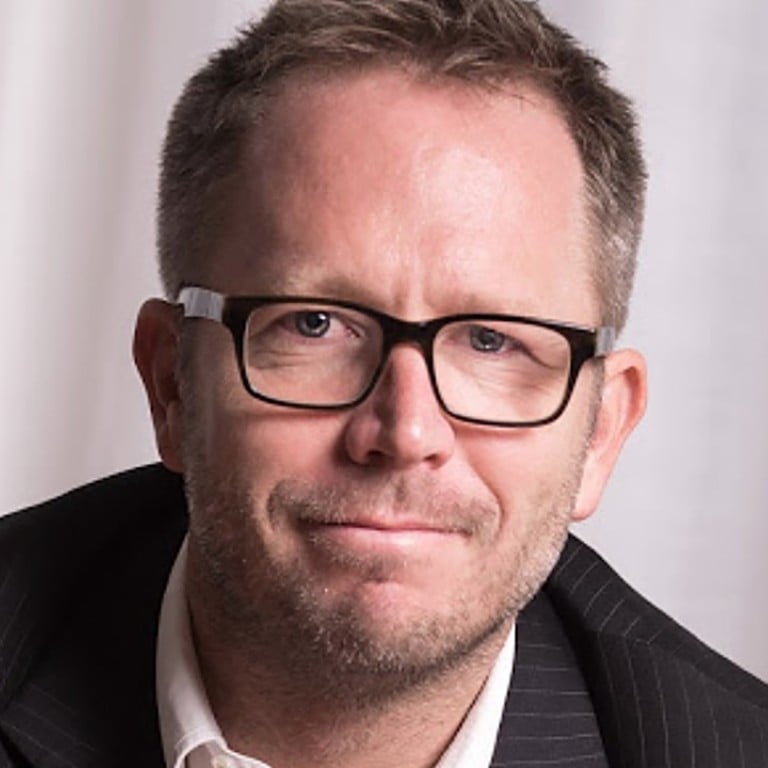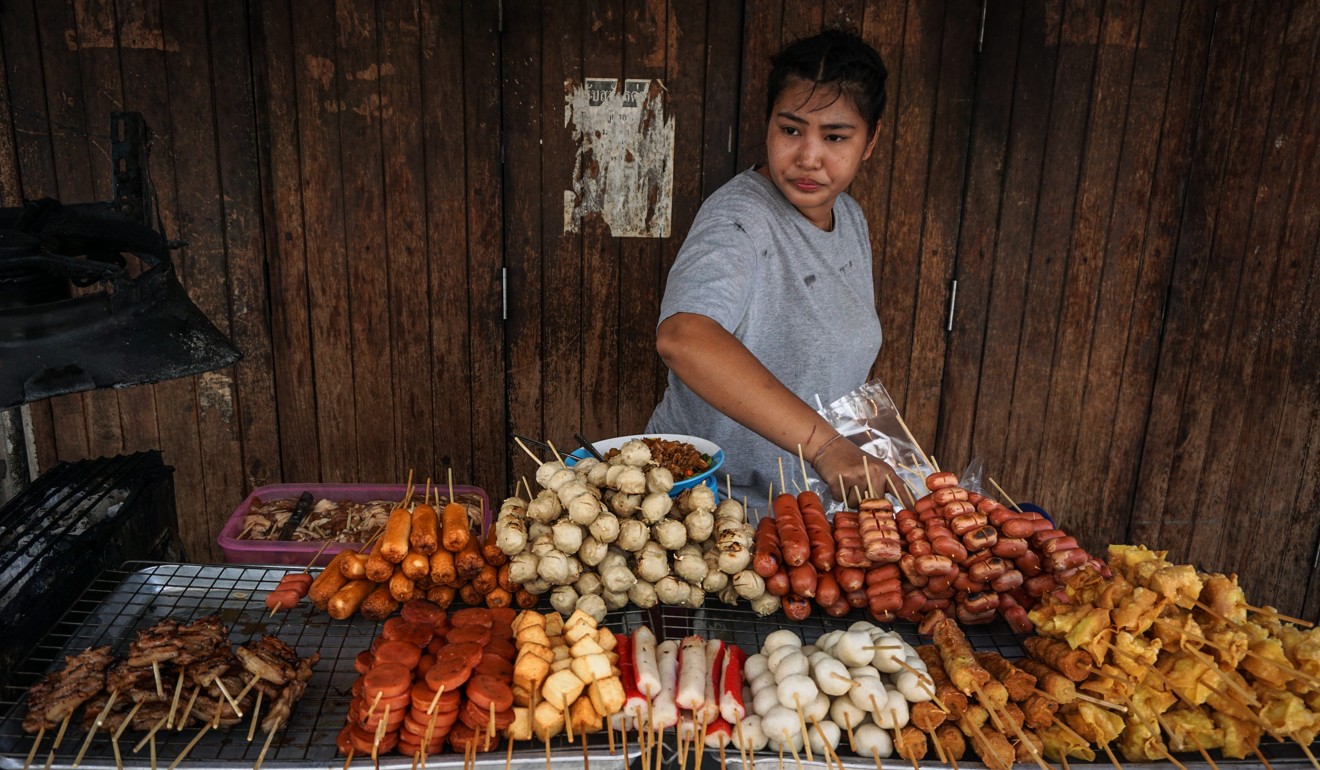
Skype co-founder Geoff Prentice turns to funding Southeast Asian microbusinesses
Geoff Prentice is now co-founder of financial solutions tech start-up Oriente, which offers purpose-based loans of between US$40 and US$150
Geoff Prentice bounds into the meeting room of his gleaming office on the 28th floor of a central Hong Kong skyscraper full of energy and dressed in a hoodie.
Almost two decades ago in 2002, Prentice co-founded Skype, arguably still the world’s best-known online phone service, and served as its chief strategy officer overseeing its expansion into Latin America and Asia.
Throughout the meeting, he references friends at tech giants like Google and Facebook, showing an inner familiarity with Silicon Valley but without a hint of pretentiousness.
Now aged 44, he lives with his wife and two children in Hong Kong, as co-founder of financial solutions tech start-up Oriente Investment Holdings: his third venture.
Originally from Detroit in the Midwest US state of Michigan, Prentice first came to Asia in the early days of Skype to find local partners who could help expand the business globally, with the aspiration of taking on the likes of Microsoft and Yahoo.
“Asia really exploded for us, around 2006,” he said. By “us” he refers to fellow Skype entrepreneurs Niklas Zennstrom and Janus Friis, who had previously founded downloading app Kazaa.
The following year he left Skype, which had already been bought by eBay Inc for US$3.1 billion in 2005. Alongside Zennstrom, he started Atomico, a tech-focused VC firm in Europe with over US$2 billion in assets under management, where he stayed for seven years.
Prentice no longer owns any part of Skype, which was in turn bought by Microsoft in 2011 for US$8.5 billion. But Asia had left its mark on him.
An acquaintance Lawrence Chu, founder of Greater China investment firm BlackPine and now chief financial officer of Oriente, invited Prentice to a series A funding round for China’s now biggest lender LU.com, or Lufax. There across the table was founding member and old friend, Hubert Tai.
“I hadn’t seen him in 10 years and we started talking,” said Prentice.
“We looked at things to do in Southeast Asia and realised a major problem that had not been solved. I said to Hubert ‘you have to do this’.”

Tai is now chief executive officer of Oriente, which has the role of promoting greater financial inclusion in Asia’s fastest growing economies by giving easily accessible, affordable credit to the underserved.
He brought a handful of people from LU.com with him in setting up Oriente last year.
Through online, app-based lending, or offline lending via an employee placed in a partnered retail store, customers can land secure specific, purpose-based loans of between US$40 and US$150.
Online customers are rated according to a credit risk score in 30 minutes, and a loan is sent in less than a day. Offline, it takes eight minutes to approve a customer with the help of a designated shop staff member.
The aim is to help small businesses such as street food stalls grow by giving owners the means to buy practical items they need, but cannot afford, rather than handing over cash without knowing its purpose, and pushing them “into the cycle of never-ending debt,” Prentice said.
A typical item might be a rice cooker, and while online loans are cash, Oriente tries to find out what lenders are borrowing for.
“The more we know about you and what you want the money for, the lower the [interest] rate. We do not just hand out money,” he said. “The important thing for us is we do not want to be loading people up with debt. There are a lot of fintech companies lending a lot of money to people who shouldn’t be having it, a lot of lax-lending and high approval rates. We don’t want to be contributing to that.”
According to the Asian Development Bank, only 34 per cent of Filipino adults, for instance, had a bank account in 2017, just 12 per cent borrowed from a formal financial institution, and 35 per cent of cities and municipalities had no banking offices.
Other figures from the Central Bank of the Philippines’ 2017 financial inclusion survey showed 40 per cent of adults rely on informal sources such as family or friend and other informal lenders including pawn shops.
The more we know about you and what you want the money for, the lower the [interest] rate. We do not just hand out money
In May this year, Oriente launched its Filipino product, “Cashalo”, to address those shortcomings through a partnership with Express Holdings, a subsidiary of Filipino conglomerate JG Summit Holdings.
In August it launched an Indonesian product, “Finmas”, jointly with one of the country’s largest conglomerates, Sinar Mas Group, and it plans to be in Vietnam early next year, although it is still to confirm a local partner. For now it is only focused on those three markets.
The company partners with local companies and uses their already-built networks to spread its reach.
As of last week, Cashalo was present in 250 stores in the Philippines through its retail partner network, including Robinsons, Oppo mobile stores and Cherry Mobile.
Having started with 1,000 users, it is adding 30,000 borrowers a month “and will be doing multiples of that by the end of the year” – that growth is even faster than Lufax or Skype in its first six months of launching, said Prentice.
Interest rates are kept low. Usual rates in the Philippines can reach 6 per cent, according to Prentice, with some informal lenders asking for up to 30 per cent a month.
Cashalo, however, offers monthly interest rates of just 2.95 to 4 per cent.
“The good thing with Skype is we were helping people and we could be profitable. It is a good thing to do both, and that is our idea: we want to keep getting to know our customers better to keep driving rates down, not trying to figure out how much money we can make from each one,” said Prentice.
The company also aims to change education levels surrounding finance in Southeast Asia.
According to Standard & Poor’s Global Financial Literacy Index, Vietnam has just 24 per cent financial literacy, the Philippines 25 per cent and Indonesia 32 per cent.
Oriente runs “financial literacy” programmes on how to save, budget and manage money, through partnerships with NGOs endorsed by their markets’ central banks.
“From the research we did before we launched, there is a massive gap in the market for this. If you meet their purpose then the actual impact you are having on the individual is greater,” Prentice said.
“But we are also cultivating a much more responsible culture.”

